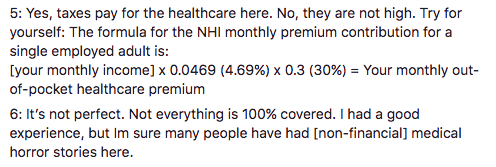The “Windy City” name has nothing to do with Chicago weather. Chicago’s nickname was coined by 19th-century journalists who were referring to the fact that its politicians were “windbags” and “full of hot air.”
Ancient Greek historian Polybius…
Ancient Greek historian Polybius came up with a cyclical theory of government (anacyclosis), where governments start off as monarchies, the final stage is ochlocracy, when a democracy degenerates into chaos and mob-rule. Then the cycle resets itself.
Melania Trump secured a ‘genius visa’…
Melania Trump secured a ‘genius visa’ for ‘extraordinary ability’ while dating Donald Trump.
Group of Engineers Proposed a Wall on the U.S./Mexico Border That’ll Pay for Itself
The US/Mexico border has been the subject of some pretty hotly contested debates recently. However, that debate could potentially be settled by a group of 28 engineers from a dozen universities, who came together to propose a wall that they believe would make those who desire a wall happy while also emphasizing alternative energy.
The plan calls for a 2,000-mile industrial park along the border that would contain natural gas pipelines, solar energy panels, wind turbines, and desalination facilities.
What if the border wall could pay for itself? Twenty-eight scientists and engineers, including from Purdue, suggest building the world's largest industrial park to bring energy, water, and jobs to region. #TakeGiantLeaps #Purdue150 https://t.co/1OnbUKosBh
— Purdue University (@LifeAtPurdue) March 9, 2019
The group believes this could be a win-win situation: “Given that most of the southern border lies in arid or semi-arid regions having high solar irradiation and wind, an energy park along the border is both feasible and desirable.”
The engineers estimate that a solar energy park along the whole border would produce the same amount of energy as a nuclear power plant. The wall would also create scores of jobs and help to assist a positive relationship between the U.S. and Mexico based on mutual interests.

Photo Credit: Pexels
Luciano Castillo of Purdue University, the group leader, said, “Democrats want a Green New Deal. Republicans want border security. Both parties could win. It could be a win–win for the U.S. and Mexico, too. This idea could spark a completely new conversation about the border. And we need that.”
What do you think? Let us know in the comments.
The post Group of Engineers Proposed a Wall on the U.S./Mexico Border That’ll Pay for Itself appeared first on UberFacts.
Australia has a long history…
Australia has a long history of throwing eggs at politicians. The Australian Federal Police was formed in 1917 after a Prime Minister was egged.
This Man’s ER Experience in Taiwan Shows How Truly Messed up American Health Care Really Is
No matter what side of the political aisle you belong to, chances are most of you would agree that America’s healthcare system, as it currently stands, is pretty broken. Even if we can’t all agree about what the right solution may be, we definitely agree that it could certainly be better.
The fact is that, when it comes to healthcare, America actually lags behind the rest of the civilized world. We spend more exponentially more money to get significantly less coverage.
Most other first world countries offer government-funded universal healthcare – and that is also true in Taiwan, where one Kevin Bozeat has been living as an ex-pat. But unfortunately, he didn’t qualify for their healthcare and had no American health insurance, either, when he found himself super sick and in need of a trip to the emergency room.
He sucked it up and let his roommate call him a taxi, figuring he’d work out the payment when it came due (the way most of us regular people do here in the States).
Here’s what happened.

Image Credit: Facebook
tl;dr: His experience was awesome and even with no insurance, it cost him $80.
Of course, since this is the internet in America, people had to try to find every which way to prove that his experience was singular, or reasons why it wouldn’t work in the States, or to insinuate that Taiwan is somehow a poor, third world country (it’s not; their GDP is higher than Denmark’s).
So, Kevin did some legwork for us in the form of arguments against all of the “good points” people made about his original post.

Image Credit: Facebook
To sum up:
- The cost of living in Taiwan is about 50% of the cost of living in the U.S. Good luck going to any emergency room here for any reason and getting out of there for less than $160.
- Doctors do make less, but they’re still solidly middle class (and there are plenty of people willing to go into the field).
- The taxes in Taiwan do pay for healthcare but they’re not high – if you have their national healthcare it works out to about $70.53/month for a person who makes $60k/year.
He acknowledges that no system is perfect, but quotes the Ministry of Health in saying that “…the Taiwanese government believes that healthcare is a right for all of its citizens, rather than a privilege for those who can afford it.”
Everyone in Taiwan is covered (along with foreign permanent resident) is entitled to coverage regardless of employment status, and no citizen goes bankrupt due to medical bills.
It sounds like a utopia, but it’s not – most of the world has figured out how to make it happen. And according to Kevin, it’s time for his home country to stop making excuses.
The post This Man’s ER Experience in Taiwan Shows How Truly Messed up American Health Care Really Is appeared first on UberFacts.
China Had to Close their Everest Base Camp Because It’s Basically Just a Pile of Garbage
That’s gotta be humiliating!
China recently had to tell tourists that their Mount Everest base camp is closed… because it is too full of trash.

Photo Credit: Twitter/PretoriaRecord
According to Xinhua Net, that not only are tourists prevented from entering the zone, but climbing permits will be limited to only 300 per year. That’s a third fewer than normal.
So, is this China’s fault?
Nope.
This has been a problem that has been happening for YEARS.
According to South China Morning Post, Nepal has implemented a $4,000 trash deposit cost per team due to all the trash that climbers leave behind.
Only problem with that are climbers are usually rich, so they don’t care about the deposit. Only half the climbers in recent years have been bringing down the required amount of garbage.
And that doesn’t even take into account the fecal matter. Because, yes, people go to the bathroom on the mountain. 12,000 lbs. worth every year.
Here’s hoping that China can figure out how to get their camp clean, and then help work on the rest of this mess.
Yuck.
The post China Had to Close their Everest Base Camp Because It’s Basically Just a Pile of Garbage appeared first on UberFacts.
1972 democratic vice presidential…
1972 democratic vice presidential candidate Thomas Eagleton was forced to drop out of the race after he was humiliated by the “revelation” that he had been treated for chronic depression.
Here’s How Some of History’s Most Successful People Started Their Mornings
Everyone has their morning routines, and starting your day off on the right foot is vital to the success of your day. Some of us find it a lot harder to start our days out productively, but it’s a new year so what better time than now to get inspired for a little self-improvement?
And, what better place to get started than taking advice from some of history’s most successful people? Here are morning routines from some names you will definitely recognize. It might be time to incorporate some of these tasks into your daily routine.
1. Meditate.

Photo Credit: Public Domain
Morning meditation can help get your head on straight and help you focus on what you need to achieve throughout the upcoming day. It also helps reduce anxiety.
Philosopher Immanuel Kant was a huge proponent of meditating each morning before he began his work day.
2. Treat yourself.
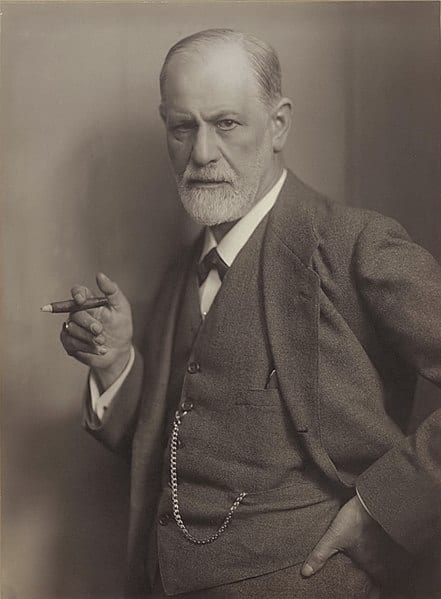
Photo Credit: Public Domain
Even though it may feel like you’re procrastinating, doing something that you enjoy or that helps you relax each morning is very important. Before jumping into their work days, Freud had a barber trim his beard each morning, and Napoleon and Mozart spent a good amount of time primping and getting dressed.
3. Make a new resolution each morning.
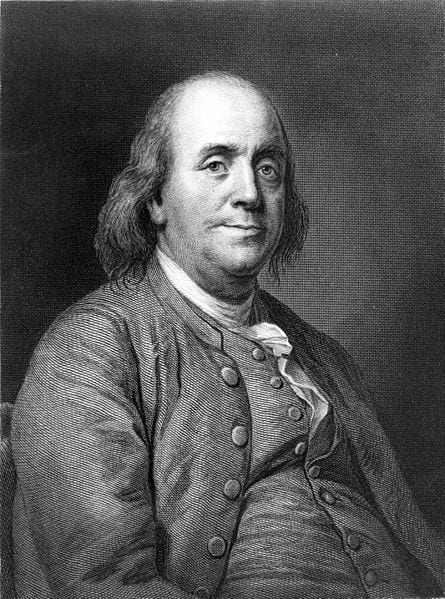
Photo Credit: Wikimedia Commons
Let’s look to Benjamin Franklin for this one. One of America’s greatest figures followed the same routine each day: He arose at 5 a.m. and said to himself, “What good shall I do this day?” Make each day count, just like Mr. Franklin did!
4. Take a walk.
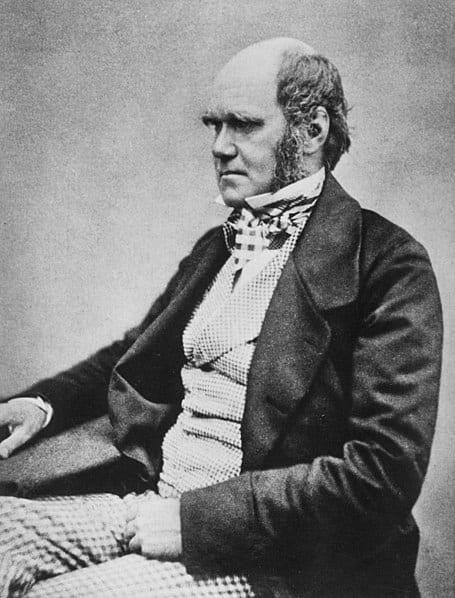
Photo Credit: Public Domain
Is there anything more relaxing and mind-clearing than taking a long walk? I think not, and I’m in good company. Charles Darwin and Georgia O’Keeffe are two examples of brilliant minds who took morning walks in order to get the creative juices flowing.
5. Work from your bed.
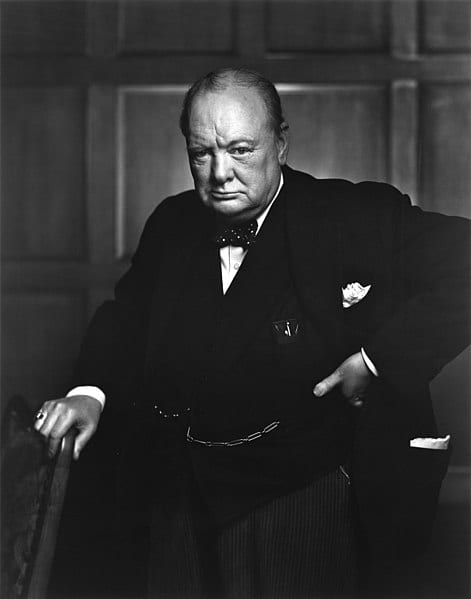
Photo Credit: Wikipedia
This one may sound a little odd, but look at the proof: The legendary French writer Voltaire regularly worked from bed and he was incredibly productive during his life, writing more than 50 plays. He was known to work 18 hour days, too, so he was clearly not a lazy guy.
Winston Churchill was also a prolific bed worker, working from there for hours each morning.
The post Here’s How Some of History’s Most Successful People Started Their Mornings appeared first on UberFacts.
When astronauts vote from space…
When astronauts vote from space, they list their address as “low-Earth orbit” in their absentee ballots. Yet recently North Dakota republicans wanted to essentially ban Native American’s from voting because many of them have no address on their IDs.










